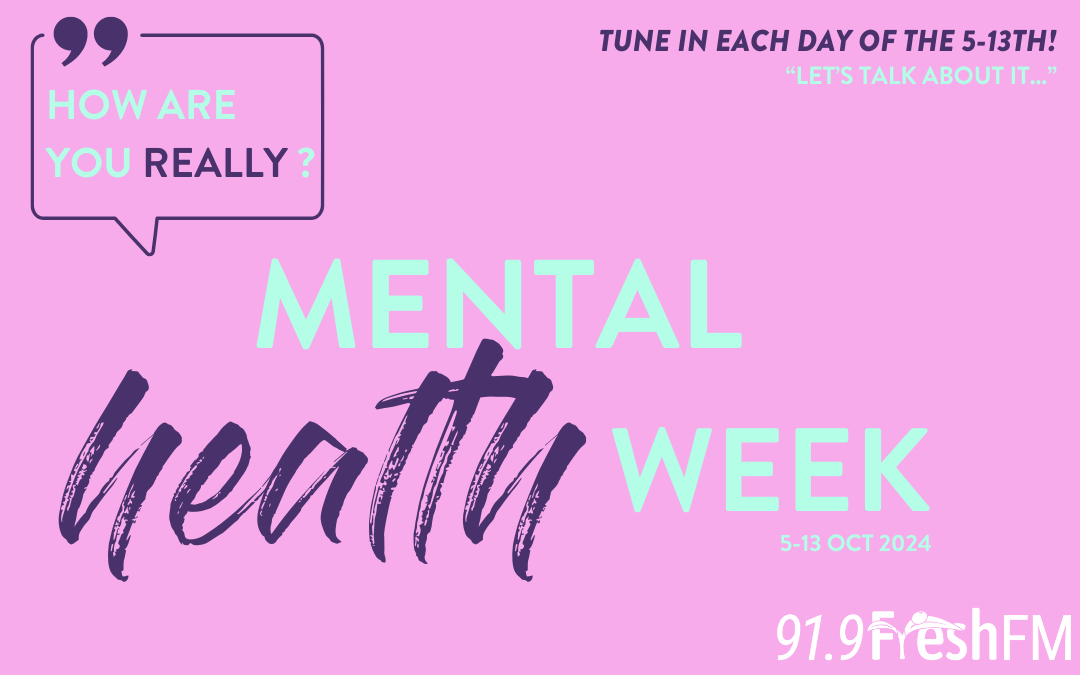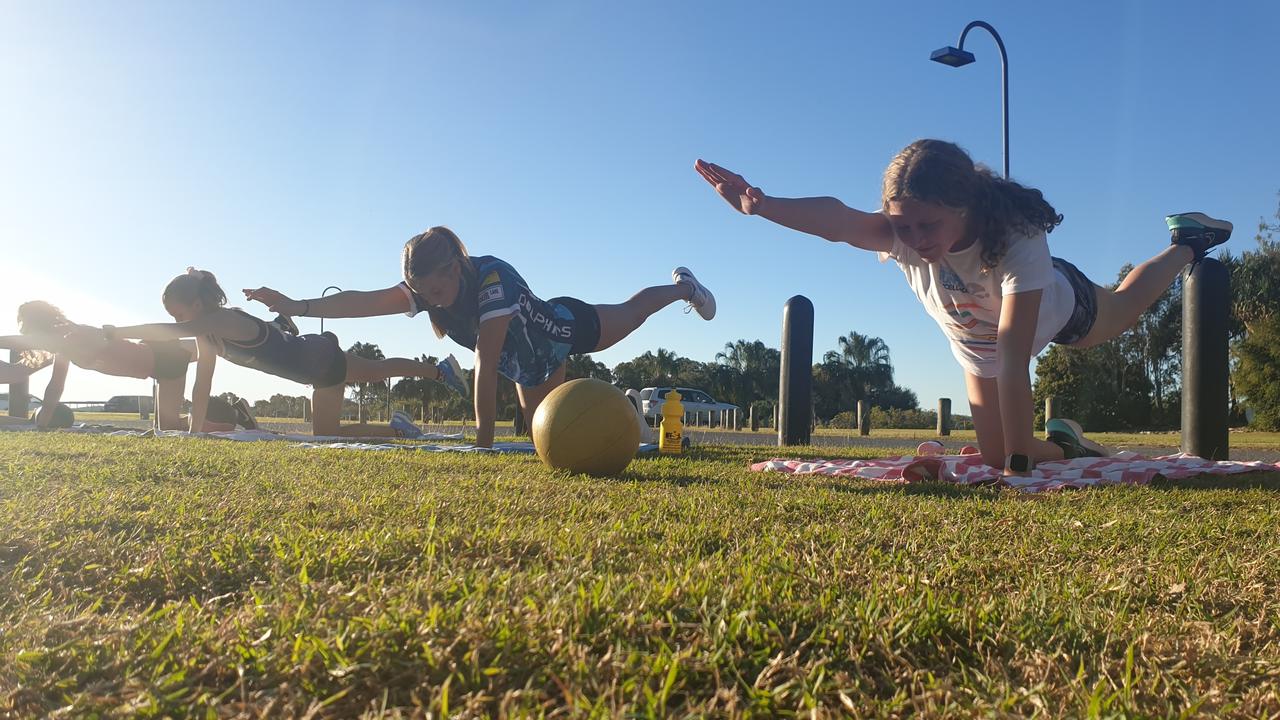
Mental Health Week (October 8-13) is an important reminder to check in on ourselves and others, focusing on daily practices that improve mental well-being. Whether you’re struggling with anxiety, and stress, or just looking for ways to improve your mood, simple actions can make a big difference.
Below are five ways you can boost your mental health this week, with practical tips and resources to support you along the way.
Day 1: Practice Gratitude

 Gratitude has a powerful effect on the brain. Studies show that regular gratitude practice can improve mental health, decrease anxiety, and even reduce depression symptoms by up to 30%.
Gratitude has a powerful effect on the brain. Studies show that regular gratitude practice can improve mental health, decrease anxiety, and even reduce depression symptoms by up to 30%.
It also releases dopamine and serotonin, the “feel-good” chemicals that make us feel happier and more content. Just by taking a few minutes each day to reflect on what you’re thankful for, you can rewire your brain for positivity.
The Bible frequently calls us to a life of gratitude. “Give thanks in all circumstances; for this is God’s will for you in Christ Jesus.” (1 Thessalonians 5:18). Gratitude is a spiritual discipline that connects us more deeply to God’s
ACTIVITY FOR TODAY:
Write down 3 things you are grateful for!
RESOURCES:
Day 2: Move Your Body

 Exercise isn’t just good for your body—it’s essential for your mind. Physical activity reduces symptoms of anxiety, depression, and stress while boosting overall mental well-being. Exercise releases endorphins, which are natural mood elevators. Regular physical activity is linked to a 20-30% lower risk of developing depression and anxiety
Exercise isn’t just good for your body—it’s essential for your mind. Physical activity reduces symptoms of anxiety, depression, and stress while boosting overall mental well-being. Exercise releases endorphins, which are natural mood elevators. Regular physical activity is linked to a 20-30% lower risk of developing depression and anxiety
.
Caring for our bodies is also a way to honour God. 1 Corinthians 6:19-20 reminds us that our bodies are temples of the Holy Spirit. By exercising, we are stewarding what God has entrusted to us.
ACTIVITY FOR TODAY:
Take a walk, stretch, or do any form of physical activity for at least 15 minutes and share what they did via social media.
RESOURCES:
Day 3: Connect with Others

 Social connection is one of the strongest predictors of mental health. Loneliness and isolation can increase the risk of depression, anxiety, and even physical health problems. On the other hand, regular interaction with loved ones can increase resilience and lower stress. People with strong social connections are 50% more likely to live longer.
Social connection is one of the strongest predictors of mental health. Loneliness and isolation can increase the risk of depression, anxiety, and even physical health problems. On the other hand, regular interaction with loved ones can increase resilience and lower stress. People with strong social connections are 50% more likely to live longer.
Hebrews 10:24-25 also encourages us to not give up meeting together and to encourage one another. Relationships are a gift from God, and through community, we can find strength, joy, and support.
ACTIVITY FOR TODAY:
Plan a “Call a Friend” day. Reach out to someone today that you haven’t connected with recently, either through a phone call, text, or meet-up. Then, share the moment on social media with the hashtag #ConnectAndCare.
RESOURCES:
Below are links to groups and organisations within the Gladstone Region that can help connect you in the community!
Day 4: Practice Mindfulness or Prayer

 Mindfulness and prayer are proven ways to reduce stress and anxiety. These practices help regulate emotions, clear your mind, and keep you grounded in the present moment. Studies show that those who practice mindfulness and meditation regularly experience 40-50% less anxiety and are better able to manage negative emotions.
Mindfulness and prayer are proven ways to reduce stress and anxiety. These practices help regulate emotions, clear your mind, and keep you grounded in the present moment. Studies show that those who practice mindfulness and meditation regularly experience 40-50% less anxiety and are better able to manage negative emotions.
As Christians, we understand that prayer isn’t just a coping mechanism—it’s a way to bring our worries to God. “Do not be anxious about anything, but in every situation, by prayer and petition, with thanksgiving, present your requests to God.” (Philippians 4:6). Prayer allows us to cast our anxieties on Him and receive His peace.
ACTIVITY FOR TODAY:
Take 5-10 minutes of quiet time today for personal reflection or prayer. This can be done at any point in the day, but the key is to disconnect from distractions (like phones or noise) and focus on being present or connecting with God through prayer.
RESOURCES:
Day 5: Get Enough Rest

 Sleep is a cornerstone of mental health. Lack of sleep has been linked to increased symptoms of anxiety, depression, and difficulty managing stress. Adults who get less than 6-7 hours of sleep per night are more likely to experience mood swings, irritability, and poor mental function. Prioritizing rest helps to reset your brain and rejuvenate your body.
Sleep is a cornerstone of mental health. Lack of sleep has been linked to increased symptoms of anxiety, depression, and difficulty managing stress. Adults who get less than 6-7 hours of sleep per night are more likely to experience mood swings, irritability, and poor mental function. Prioritizing rest helps to reset your brain and rejuvenate your body.
Psalm 127:2 also reminds us that rest is a gift from God: “He gives sleep to His beloved.” Resting not only restores us physically, but it also allows us to trust God to handle what we cannot, even while we sleep.
ACTIVITY FOR TODAY:
Pick one nightly routine to implement starting tonight!
